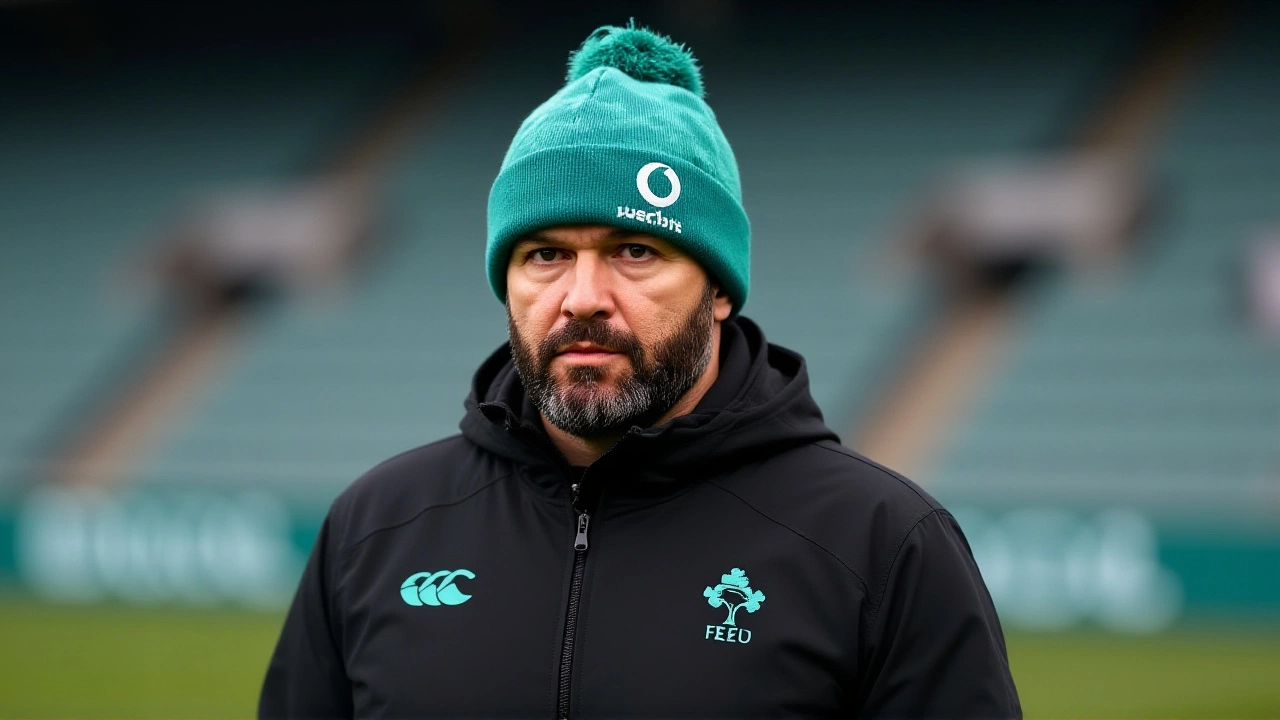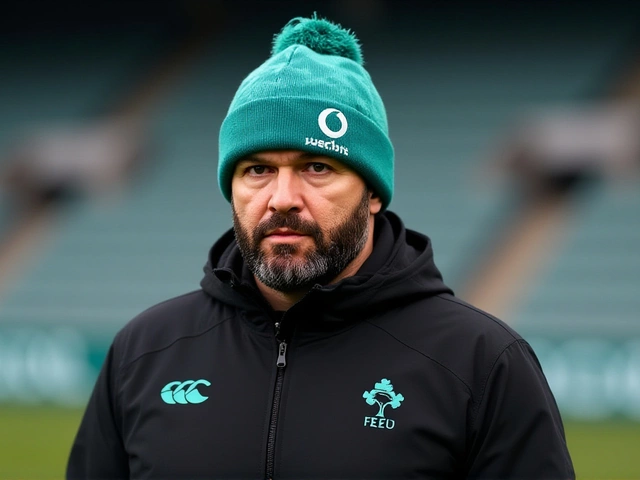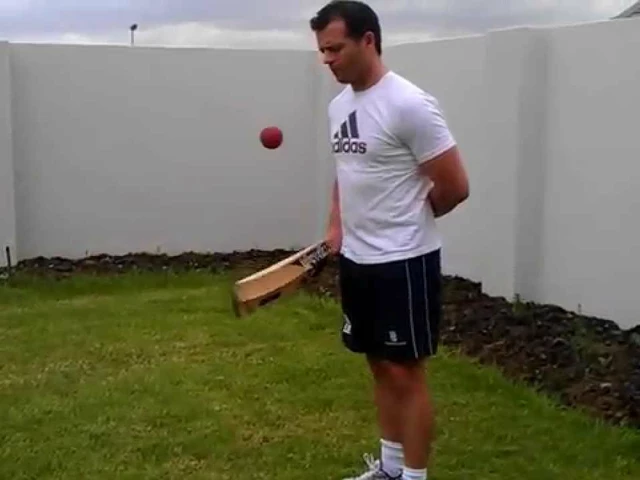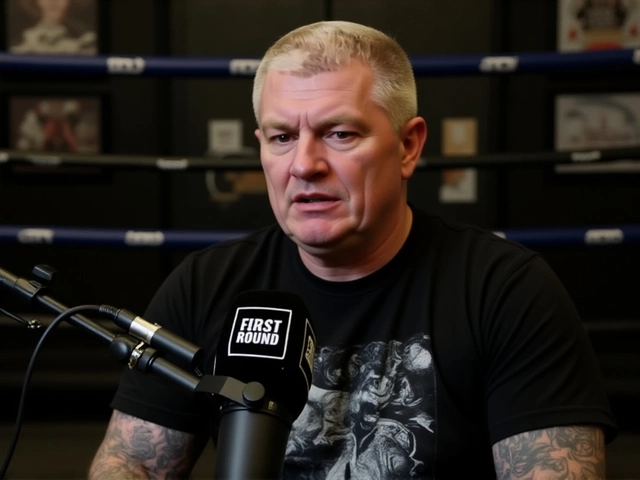On a cold November night in Dublin, the Springboks didn’t just win — they rewrote history. South Africa beat Ireland 24-13 at the Aviva Stadium on Saturday, November 22, 2025, ending a 13-year winless streak in the Irish capital that stretched back to 2012. The victory wasn’t just about points. It was about grit, discipline, and a scrum that refused to budge — even as the game spiraled into chaos. And behind it all, the officiating became the real story.
A Scrum That Refused to Move
From the opening whistle, the Springboks looked like a team on a mission. Their set piece was surgical. Their scrum, as The Good Things Guy put it, "simply refused to move backwards." Ruan Nortje, wearing the No. 6 jersey, was everywhere — 21 tackles, 4 lineout steals, and a relentless engine that allowed coach Rassie Erasmus to rotate his bench without fear. RugbyPass gave him a 7.5/10, calling him "South Africa’s commanding presence in the lineout" and "an 80-minute man." His work didn’t just win rucks — it broke Ireland’s rhythm.Meanwhile, Ireland’s attack looked disjointed. Even with four changes to the starting XV — including Mack Hansen at fullback and Garry Ringrose at inside center — the team couldn’t find space. Fly-half Sam Prendergast struggled under pressure, and the backline looked out of sync. The Irish forwards, once a powerhouse, were constantly pushed back at the scrum. One YouTube highlight clip from TryZone TV captured it perfectly: "The Irish scrum pulverized once more. Fineberg and Gazulu — oh, such a superstar size through South African lead to 11 and he nails it."
The Cards That Changed Everything
Here’s the thing: this wasn’t just a rugby match. It was a courtroom drama with whistles.For 40 minutes in the first half, Ireland played with 12 men. Four yellow cards in rapid succession — James Ryan, Tadhg Beirne, Josh van der Flier, and Caelan Doris — all sent to the sin bin. A fifth followed in the second half. At one point, Ireland had only seven forwards on the field. The crowd fell silent. The Springboks smelled blood.
But here’s the twist: the cards weren’t evenly distributed. RugbyPass reported that South Africa was penalized just once in the same 40-minute stretch. Fans on Reddit and Twitter erupted. One wrote: "Ireland’s dodgy illegal scrum techniques were found out, you break the rules you pay the price." Another fired back: "The ref penalized SA for abusing Irish players. Willemse and Rassie gestured at the Irish crowd. Saffer liars invent the conspiracy theory that the Irish forced them. SA are a disrespectful and arrogant team."
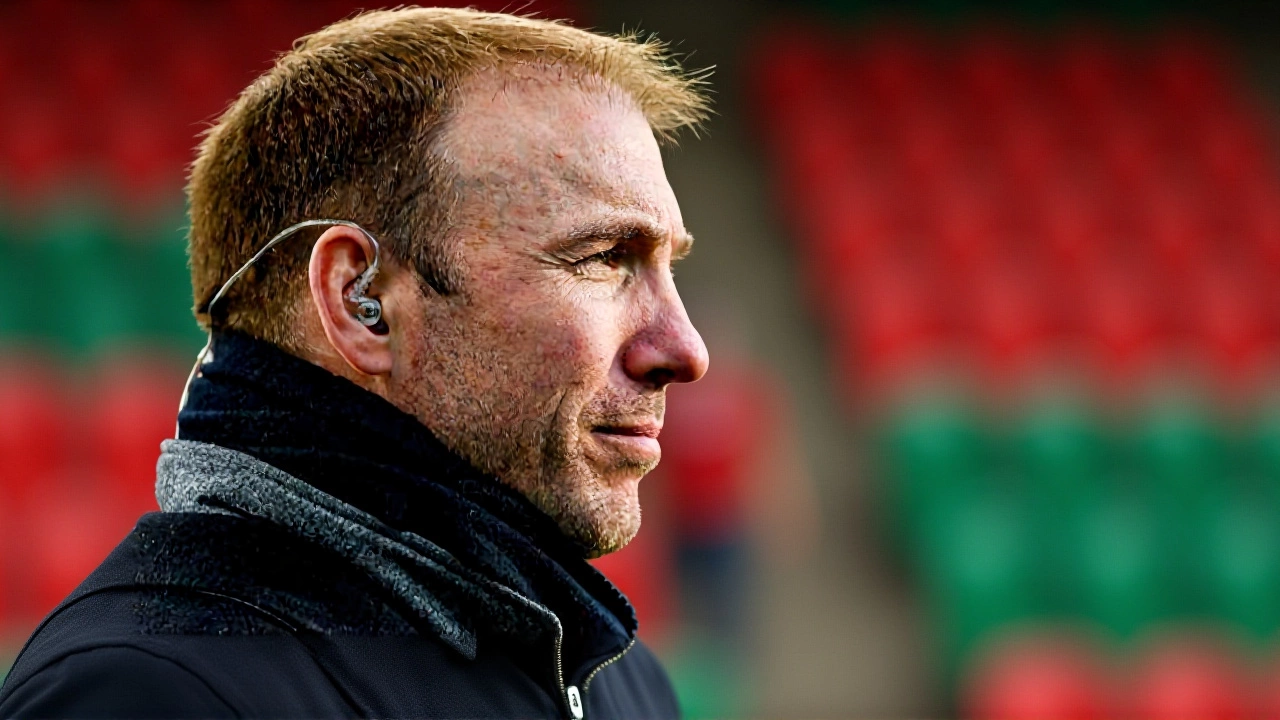
A Crisis in Black and White
Less than 24 hours after the final whistle, The Irish Times published a 4-minute read titled: "Ireland-South Africa game should be a watershed moment in rugby's officiating crisis." The piece didn’t just criticize the referee — it questioned whether World Rugby had lost control of its own game.The analysis pointed to three systemic failures: inconsistent interpretation of scrum laws, delayed sanctioning of dangerous play, and a troubling lack of accountability in high-stakes matches. "If this is what top-tier refereeing looks like," the article concluded, "then World Rugby may as well hand the whistle to a fan with a phone and a Twitter account."
It wasn’t the first time Ireland had been on the wrong end of controversial decisions — but this was different. The volume of cards, the timing, the visibility — it all pointed to a deeper rot. Former referee Nigel Owens, speaking to Rugby Today, said: "You can’t have a match where one team is reduced to 12 men for over half the game and not have the system questioned. That’s not sport. That’s chaos."
What This Means for the Future
For South Africa, this win isn’t just a trophy. It’s a statement. Erasmus has now beaten Ireland in Dublin — a place where his predecessors failed for over a decade. The Springboks are building momentum ahead of the 2027 World Cup, and this performance showed they can win ugly when they need to.For Ireland, the road ahead is harder. Andy Farrell’s tactical adjustments didn’t pay off. The team’s discipline collapsed under pressure. And now, the mental toll of losing — not just to a better team, but to a broken system — could linger longer than any injury.
World Rugby has yet to respond. But the clock is ticking. With the Autumn Nations Series still ongoing and the 2027 World Cup on the horizon, the pressure is mounting. If referees continue to make decisions that divide fans, demoralize teams, and undermine the integrity of the game, the sport risks losing more than matches — it risks losing trust.

Behind the Numbers
- Final score: South Africa 24 - 13 Ireland
- Date: November 22, 2025
- Location: Aviva Stadium, Dublin
- Yellow cards to Ireland: 5 (4 in first half, 1 in second)
- Yellow cards to South Africa: 1
- Key player: Ruan Nortje (7.5/10, RugbyPass)
- Winless streak ended: 13 years (last Springbok win in Dublin: 2012)
Frequently Asked Questions
How did the Springboks manage to dominate the scrum so effectively?
South Africa’s scrum was built on precision and physical conditioning. The front row — led by Andrew Porter’s opposite, Tadhg Furlong — was outmuscled consistently. Analysts noted the Springboks’ low, synchronized drive and strict binding technique, which minimized penalties while maximizing pressure. This wasn’t luck; it was months of targeted training under scrum coach Deon Fourie. Their dominance forced Ireland into defensive errors and conceded five penalties in the first half alone.
Why were five Irish players carded in such a short time?
The five yellow cards stemmed from repeated infringements at the scrum and ruck — specifically, collapsing, early engagement, and not rolling away. Ireland’s forwards, under immense pressure, began reacting emotionally rather than technically. Referees, reportedly instructed to crack down on dangerous play, applied the rules strictly — but inconsistently. South Africa committed fewer scrum offences, and their own penalties were often overlooked, fueling accusations of bias.
What impact will this have on World Rugby’s refereeing standards?
The backlash has already triggered internal reviews. Sources within World Rugby confirm a confidential meeting is scheduled for early December to reassess referee training protocols, particularly for high-intensity Tests. The Irish Times analysis has been circulated to all Tier 1 unions. Expect tighter scrum laws, mandatory video review for multiple yellow cards in a single half, and possibly a new "critical incident" protocol to ensure consistency across matches.
Is this win a sign the Springboks are back as world champions?
It’s a strong signal. Winning in Dublin after 13 years proves the Springboks can win under pressure, away from home, and in hostile conditions. Rassie Erasmus has built a squad that combines physical dominance with tactical flexibility. With key players like Nortje, Siya Kolisi, and Cobus Reinach in form, South Africa enters the 2027 World Cup cycle as serious contenders — but they’ll need to maintain discipline and avoid the controversy that overshadowed this match.
How did Ireland’s lineup changes affect their performance?
Andy Farrell’s four changes — including dropping Bundee Aki for Garry Ringrose and promoting Sam Prendergast to fly-half — were meant to add speed and creativity. But the lack of cohesion was evident. Ringrose, usually a playmaker, was isolated in midfield. Prendergast struggled to control tempo under pressure. The replacements — including Jack Conan and Craig Casey — came on too late to make a difference. The changes looked good on paper, but the execution collapsed under the weight of the refereeing chaos.
What did fans on social media say about the officiating?
Social media exploded with polarized reactions. Irish fans accused the referee of favoring South Africa, citing a lack of retaliation for alleged verbal abuse and repeated scrum infringements. South African supporters argued Ireland’s scrum was illegally destabilized and that penalties were fair. Hashtags like #Refgate and #SpringboksJustice trended globally. The divide wasn’t just about the game — it was about whether rugby still believes in fair play, or just outcomes.
